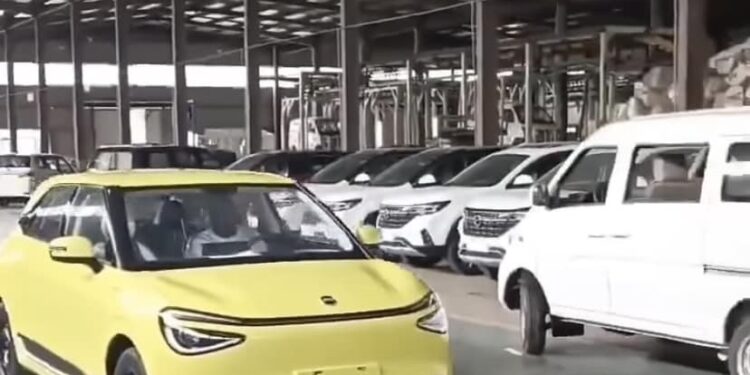Innoson Vehicle Manufacturing Company (IVM) has unveiled its first locally made electric vehicle. The unveiling was done earlier today Wednesday via the company’s official Facebook page. The company’s Head of Communications and Corporate Affairs, Cornel Osigwe stated that the electric vehicle was built at the company’s production plant in Nnewi, Anambra state.
Mr. Osigwe revealed that this marks the company’s first-ever production of an electric vehicle (EV). However, details regarding the pricing of the Innoson EV, number of units produced and the timeline for its commercial release were not disclosed.
Electric vehicles are becoming very popular across the world as climate change awareness continues to grow. The vehicles are considered very crucial to achieving carbon emission reduction and decarbonizing road transport. According to the International Energy Agency (IEA), the road transport sector is responsible for over 15% of global energy-related emissions.
The sale of electric vehicles has seen major growth in the last couple of years with an estimated 18% of new cars sold in 2023 being electric. However, in many developing countries, sales have been stagnant due to erratic power supply and the high cost of purchase compared to traditional vehicles.
- Advertisement -
Despite this challenge, the use of electric vehicles may provide an alternative to now that fuel prices have gone up in Nigeria following the de-regulation of the petroleum sector.
The first locally assembled electric vehicle in Nigeria was released in 2021 by Hyundai Kona. It was produced by Stallion Motors. The debut of the Hyundai Kona was a big step for Nigeria’s automobile industry, at a time the world is shifting away from petrol-powered vehicles.
However, Nigeria faces a big challenge in its power sector as it only manages to generate around 5,000 Megawatts of electricity despite its energy demands reaching around 40 terawatts of power. In fact, the World Economic Forum (WEF) reports that Nigeria currently faces one of the highest levels of energy poverty globally with Nigerians having to rely on backup generators to meet up to 40% of their electricity needs. This could pose a big problem to the survival of the emerging electric vehicle market.










